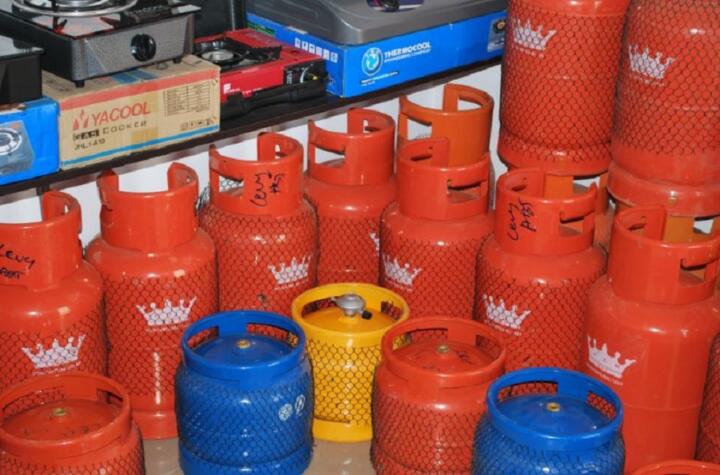Eterna Plc has raised alarm over the growing return of many Nigerian households to firewood and charcoal for cooking, attributing the trend to the soaring cost of gas cylinders and refilling. The energy firm warned that the shift poses significant health and environmental risks if not urgently addressed through policy interventions and price reforms.
Speaking during a recent stakeholders’ meeting in Lagos, the company’s Head of Retail Business, Mr. Peter Oranusi, said the high upfront cost of acquiring Liquefied Petroleum Gas (LPG) cylinders, coupled with rising refill prices, has discouraged millions of low- and middle-income families from using cooking gas.

According to him, many Nigerians who adopted LPG during the government’s earlier push for clean cooking are now reverting to cheaper but harmful energy sources, such as firewood and charcoal, which contribute to deforestation and indoor pollution.
“The high cost of cylinders is one of the biggest barriers to LPG adoption,” Oranusi stated. “Many households simply cannot afford the initial investment required to purchase cylinders, stoves, and accessories. As a result, they fall back to traditional cooking methods that are unsafe and environmentally damaging.”
Industry data show that the average price of a 12.5kg LPG cylinder in Nigeria now exceeds ₦25,000, while refilling costs between ₦1,200 and ₦1,400 per kilogram, depending on location. In contrast, firewood and charcoal remain significantly cheaper and more accessible, especially in rural and semi-urban areas.
Oranusi noted that this trend undermines Nigeria’s commitment to achieving its clean energy transition goals and the global drive for carbon emission reduction. He urged the Federal Government to intervene through targeted subsidies, local cylinder manufacturing support, and public awareness campaigns to reverse the decline in LPG usage.
“The government needs to reintroduce a cylinder exchange or loan scheme to make gas more affordable. Without addressing affordability, the nation’s clean cooking initiative will continue to face setbacks,” he added.
Environmental experts have also expressed concern that the resurgence of biomass cooking fuels could accelerate deforestation and contribute to climate change. A 2024 report by the Clean Cooking Alliance estimated that over 70% of Nigerian households still rely on solid fuels, despite years of LPG promotion campaigns.
In addition to environmental degradation, health professionals have warned of the dangers of indoor air pollution caused by smoke from firewood and charcoal. The World Health Organization (WHO) estimates that smoke-related respiratory diseases kill over 100,000 Nigerians annually, mostly women and children exposed to unventilated cooking spaces.
Eterna called on the private sector to collaborate with government agencies and development partners to develop innovative financing models that would make gas cylinders more accessible. The company also pledged to expand its retail network and LPG distribution capacity to help reduce costs across the supply chain.
“As a responsible energy company, we are committed to promoting clean and affordable energy solutions. However, affordability remains a critical factor that must be addressed through collaboration between regulators, marketers, and the financial sector,” Oranusi emphasized.
The company further urged policymakers to prioritize local production of gas cylinders and accessories to reduce import dependency and foreign exchange pressure, which have contributed to the sharp rise in equipment costs.
Analysts have argued that until cylinder ownership becomes affordable and gas pricing stabilizes, the adoption of LPG as a primary cooking fuel will remain limited, especially among low-income households.
“The long-term solution lies in scaling up local cylinder manufacturing and introducing flexible payment systems,” said energy analyst, Mrs. Amina Sadiq. “Without these steps, many families will continue to rely on firewood — to the detriment of their health and the environment.”
Eterna’s warning comes amid growing concern that the government’s 2030 target for universal clean cooking access may be at risk if the affordability crisis in the LPG market persists.
Support InfoStride News' Credible Journalism: Only credible journalism can guarantee a fair, accountable and transparent society, including democracy and government. It involves a lot of efforts and money. We need your support. Click here to Donate
